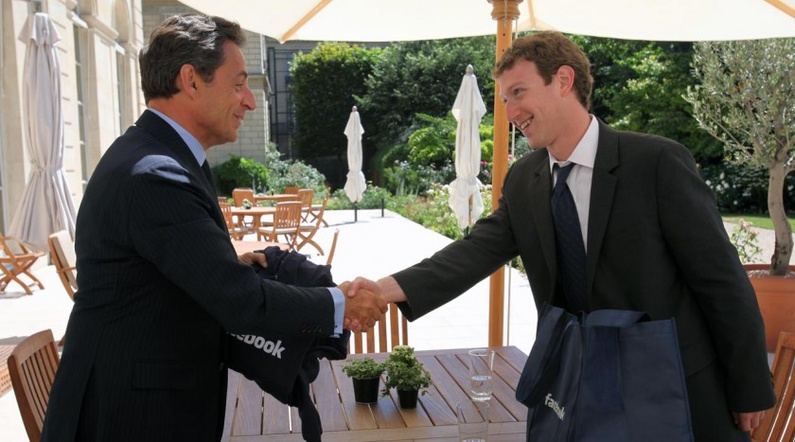
Fail2Succeed: changing european attitudes to entrepreneurship
Published on
Fear of failure is one of the greatest obstacles for young people in business. The powerful stigma attached to entrepreneurial failure stops many young Europeans pursuing their ideas. Fail2Succeed aims to remedy this stigma and open up entrepreuneurship for young Europeans. We spoke to ThinkYoung founder Andrea Gerosa about achieving success through failure
Cafébabel: What impact do you hope to have by making young people less afraid of failure in business?
Andrea Gerosa: Fail2Succeed is part of ThinkYoung, an organisation I founded to make the world a better place for young people. In the short term we could increase the number of young people who start their own company, who give it a try, especially in this time of crisis, when a lot of people are thinking about it but they’re afraid. Because if you go bankrupt, it’s not just a day- it’s six months before you start realising it, banks and creditors start calling you, then you stop going to work and there are psychological problems- people start to drink, people with families start having family problems; so it’s a long term process and the whole idea is to make this shorter.
In the long term, if we start to have an impact on business culture, then you could actually trigger innovation. One problem in Europe is our companies are not innovative any more because they don’t take risk.
Cafébabel: The name Fail2Succeed suggests failing is a necessary route to success. Can failure actually improve your chances of success?
Andrea Gerosa: It does! You see it with everything in life- if you spend five years doing research into cancer, and you fail, nobody blames you because you failed; it’s good because you tried. It’s the same when you try new technologies. But failure in business is not seen as something people accept in Europe. Everything you do in life- you go, you try, you fail, and you start again, then it works out and you come good.
Cafébabel: How are attitudes different in America and Europe?
Andrea Gerosa: In the US people are not afraid of taking risks. If you start a company in the US and you go bankrupt, when you go to a job interview you want to tell them because failure is seen as a positive thing on your CV, whereas in Europe you want to hide it, because it’s a very negative thing on your CV.
 If you go bankrupt in the States, it’s very likely you get a job at Google or Apple, but in Europe that doesn’t really happen much. In Europe, business is still very much linked to family, to values which are not just pure profit, or just personal business achievement and satisfaction but its more a family or a community achievement.
If you go bankrupt in the States, it’s very likely you get a job at Google or Apple, but in Europe that doesn’t really happen much. In Europe, business is still very much linked to family, to values which are not just pure profit, or just personal business achievement and satisfaction but its more a family or a community achievement.
Cafébabel: Where you come from in Northern Italy had a lot of entrepreneurship and that instilled in you the desire to do business; is entrepreneurship ingrained in culture?
Andrea Gerosa: The desire is cultural. That’s why in a lot of Europe, especially in Southern Europe- media has a huge impact. If you open Spanish, Italian or Greek newspapers, the first 15 pages are about politics- so obviously everybody wants to be in politics, it’s natural.
It’s hard to become a football player if you’ve never seen a football match in your life. It’s like going climbing, having never seen people climb, but you show a guy a mountain and say ‘climb’.
That’s why we do our summer schools with no professors, only entrepreneurs teaching. At universities, they don’t do that and I don’t understand why- they should have more entrepreneurs teaching.
We should give more visibility, importance and praise to entrepreneurs who actually create a company, jobs, innovation and make our lives better.
Cafébabel: Have young people's attitudes to entrepreneurship changed recently?
Andrea Gerosa: In the last 3, 4 years, people have come to see entrepreneurship as a possibility, as a way out of unemployment. People are also starting to see entrepreneurs as role models.
When Steve Jobs died there was so much talk about his life in the media, people started seeing the other side of the coin of being an entrepreneur. A lot of the young generation has been completely changed by the Facebook story. The Facebook movie had a strong impact in changing the attitude of young people towards becoming an entrepreneur, and the story of the Zuckerburg himself is insane. Interest in entrepreneurship certainly grew then.
Cafébabel: What are the aims of Fail2Succeed?
Andrea Gerosa: The first step was research and a survey to discover what young people think about failure; why there is this fear of failure and what it’s linked to.
We’re making a documentary movie- consisting of six profiles of young entrepreneurs who experienced failure and started again successfully. This is to make sure young people understand it’s possible to start again. A movie is easier to disseminate, to share, and to find online than if you publish a paper.
The last part of the project is to make policy proposals to the European institutions, to change bankruptcy laws, especially introducing a different bankruptcy law when it comes to Startups, to SMEs and to multinationals.
The second area of policy proposals will be discharge periods- the period in which you can’t start a new company after you’ve been bankrupt, which varies around Europe.
The last policy focus will be the repayment of creditors- when you start, how much etc.
Cafébabel: Like Cafébabel, your project is orientated towards young people. How does that influence your communication strategies and what do you think of the EU’s communication?
Andrea Gerosa: It basically means we don’t give a shit about television, but focus on the internet and everything that is social media. The cool thing, or the problematic thing now, is that every 4 or 5 years you have a technological break through- you have to be able to adapt. Our communication team have a nightmare job.
I don’t have the arrogance to say the EU should learn from us, but it’s true that they suck at communicating, not just with young people, even with old people. Communication is a two way thing- it’s listening and replying, and so far the EU has just been talking but hasn’t been listening.
Another thing which I keep saying when I’m in Brussels but they won’t listen to me, is that they are too much in Brussels- they don’t get around. They prefer the safety of being in Brussels than the risk of going to Southern Spain and having people complaining at them, whereas I think they should take the risk and go, because they’re good, and when you’re good you should take the risk and do it.



